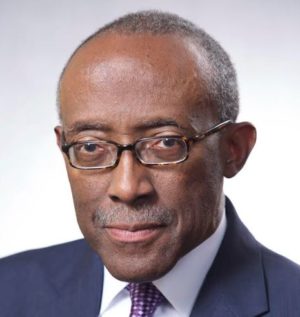
(By Jim Winston) When I read Radio Ink Publisher Deborah Parenti’s June 2 column, “Start the Conversation,” I was very pleased that a distinguished leader in the radio industry recognized the importance that African American radio station ownership makes at this moment in our history.
The African American community is in crisis. The COVID-19 pandemic has sickened and killed people in our communities at a disproportionate rate. It has also caused massive unemployment in our communities. Now, the violent death of George Floyd caught on video has proven to be the last straw for many in our communities, and they are demonstrating their anger and frustration in the streets.
The reasons that so many African Americans are in the streets protesting are complex and solving the problems that have created the protests will not be simple. That will require the commitment and dedication of our public officials and citizens across this great country. As radio broadcasters, we have a special role to play in solving the many problems that have led to the street protests. We can make sure that we are reporting accurately and fairly the events that are roiling our communities.
For NABOB’s African American owners of broadcast stations our obligation is even greater. We exist because African Americans view us as the most trusted voices in the media. They look to us to share their stories with each other and with the broader community. Unfortunately, as Ms. Parenti highlighted in her column, the number of African American owned radio stations is vastly below an acceptable level. African Americans make up 13% of the American population, yet we own fewer than 180 of the more than 11,000 commercial radio stations in America, 1.6%.
This low ownership level of radio stations by African Americans means that we cannot have the voice we need to have our concerns adequately heard or addressed by our leaders. The 1968 Kerner Report on the disturbances that spread across America reported that the lack of control over media was one of the underlying causes for the unrest. Given the small number of African American owned radio stations today, 52 years later, it is understandable that many African Americans continue to feel that they are not being heard.
Ms. Parenti pointed out that several members of Congress are pushing for passage of Congressman G.K. Butterfield’s H.R. 3957, “Expanding Broadcast Ownership Opportunities Act of 2019,” which would reinstate the tax certificate as a means of increasing ownership of broadcast stations by minorities and women. During the years that it was in effect, 1978 to 1995, the tax certificate was by far the most effective policy for promoting minority broadcast station ownership. Since its repeal, African American radio station ownership has steadily declined. NABOB, along with MMTC and NAB, has been fighting for passage of this legislation for years. If, as Ms. Parenti proposes, we “start the conversation,” I support her recommendation that we start the conversation around getting passage of H.R. 3957.
Jim Winston is The President of National Association of Black Owned Broadcasters. He can be reached by e-mail at [email protected]







Good points have been made all around there are several other contributing issues that pay a part in the lack of Minority Ownership which is mainly Access to Capitol. We can talk about the 96 act but having access to Capitol is where it starts and ends for me.
The Telecommunications Act of 1996 set the stage for this. Because of it, large corporations were able to gobble up lots of radio stations while causing the prices of stations to skyrocket. And the auction system ensures that only those with the deepest pockets need apply for frequencies that may be dropped into an area. As a result, African-Americans, Latinos, and small businessmen in general have been frozen out and cookie cutter corporate programming has replaced programming that actually serves the local communities. Probably one of the worst cases is Boston. For decades, WILD, a small AM Class D station, provided excellent service to that city’s African-American community. That station is now under corporate ownership and is being leased to China Radio International. Since CRI is the state broadcaster of mainland China, Chinese Communist propaganda has replaced programming for Boston’s African-American community. A pirate station, Touch 106.1, came on the air to fill that void, but, being an unlicensed and illegal station, it was shut down by the FCC. Its frequency is now occupied by a translator that rebroadcasts a corporate station.
Absolute BS. The 96 Act had nothing to do with it Minorities could have bought stations during the FM expansion of Docket 80-90 in the 1980s, but they didn’t. There are lots of AM stations that are available right now for pennies on the dollar, and they’re not buying. As far as Boston is concerned there have been several stations sold there recently. A minority group could have bought WAAF instead of EMF, but no one made an offer.
You are absolutely correct. There is very little diversity in broadcast ownership. In every market multiple stations are owned by just a few corporations who also own many other markets. Very little room for independent broadcasters. Today the old 1 AM, 1FM, 1 TV per market and 7/7/7 maximum may not work but under those rules stations (even the corporate o/os) did a better job of serving their communities and there was a bigger diversification of ownership.
Its hard to compete aggressively when you own the competition.